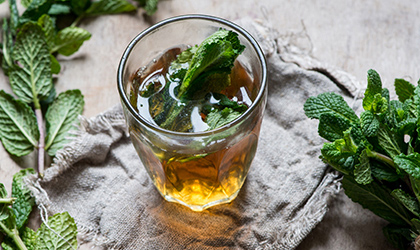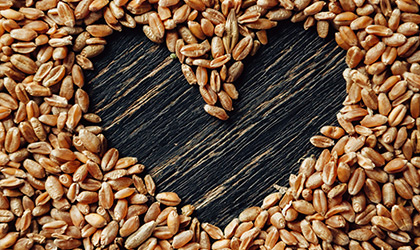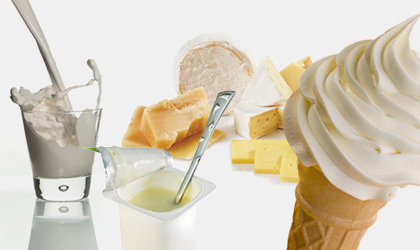
Anything that can affect your disease states can affect your gut microbes. And it isn’t all about diet; you need a multipronged approach. Fortunately, the pillars of good gut health are also the pillars of good general health.
How do we know if our gut is happy?
Your gut is pretty smart. And there are many ways it communicates with you if it’s not happy. The most obvious warning signs are gut symptoms, such as bloating, gas, constipation, acid reflux, heartburn, or food intolerances. But even if you don’t have traditional digestive symptoms, you may still need to improve your gut health. Don’t forget your gut microbiome affects almost every system in the body. If you’re the first person to catch a cold, struggling with your mental health, or battling insomnia, it may signal that you need to spend more time nurturing your gut.
Check in with your poop
Your poop reveals what your microbiome is doing. There’s no need to be grossed out by it (we all do it!). Relieving yourself anything between three times a week and three times a day is healthy.
The Hadza Tribe
In a study on a Tanzanian hunter-gatherer tribe known as the Hadza, researchers found their gut microbiome is around 50 per cent more diverse than those in the West (28). Amazingly, these tribespeople have access to over 8,000 different plant foods and tend to eat 2,000 of these throughout their lifetimes. The Hadza have microbes that we simply don’t have in the West. We should all try to emulate the Hadza's focus on diversity.
Don’t just diversify your diet; diversify your life and experiences. Diversity – in every sense of the word – will make your gut stronger and more robust.
Diets linked to longevity are high in diverse plant foods. The more varied your gut microbiome, the better your gut health and the better your overall health.
Fermented foods
Before the era of refrigerators, fermentation was an age-old process used to preserve food. But the benefits of fermentation go far beyond simply extending a food’s shelf life. Fermentation also enhances the natural, live bacteria found in food, which are widely known to support gut health. Health experts now believe eating a small number of fermented foods every week may help feed the microbial pet living in your gut.
The three k’s
Increasing your intake of the three k’s is a great place to start: kombucha (naturally fizzy fermented tea), kefir (fermented milk) and kimchi (fermented cabbage Korean-style). Although these foods have been around for centuries, they’ve made a comeback. You can find them lining the shelves of supermarkets and health food shops. You can even brew your own ‘buch’ or whip up some homemade kimchi.
More must-eat fermented foods
-
Sauerkraut (fermented cabbage)
-
Miso (fermented soybean paste)
-
Tempeh (fermented soybeans)
-
Yoghurt (fermented milk)
-
Lassi (soured milk)
-
Sourdough bread (fermented dough)
An illuminating Stanford study
Researchers at Stanford School of Medicine reported exciting findings on fermented foods. They found that participants who followed a ten-week diet rich in fermented foods improved their microbiome diversity and immune response, which was associated with better overall health (29).
Always check the label
Not all fermented foods are created equal. Some pickled varieties are made using vinegar – not the natural fermentation process famed for producing live organisms. To ensure the fermented foods you buy contain live bacteria, always check to see ‘naturally fermented’ on the label.
Time-restricted feeding
Although what we eat is important for our gut microbes, so too is when we eat. Just like us, our bustling microbial community also has a circadian rhythm; it needs time to rest, especially since a percentage of your stomach lining is replaced and repaired every night. And yet, around half of adults in Western countries eat for 15 hours or longer a day. The problem is, the gut can’t recuperate and repair if it’s working overtime at night. Now, emerging data suggest short periods of fasting could serve our microbial community enormously.
Aim for an 8-10-hour eating window
Aligning your eating time with your circadian rhythm – eating in an 8-10 hour window – may support your gut health, along with various other systems in the body. Many people choose to eat between 12pm and 8pm. (Bonus: time-restricted feeding is also known to improve your sleep).
Fasting improves gut health
In a 2017 review on intermittent fasting, researchers from the University of California reported that prolonged overnight fasting and reduced night-time eating may lead to sustained improvements in overall health, especially concerning the gut microbiome (32). Time-restricted feeding may also protect gut health by altering our metabolism and immune functions (33).
Your gut is like a lawn
It can be helpful to think of your gut as a lawn. You should avoid walking over it every few hours to let it flourish. The microbiome will enjoy more diversity if it doesn’t have food charging through it all day long.
The advice to ‘graze’ and eat ‘little and often’ is now being called into question. You may like snacking, but your gut isn’t overly keen on it. Limiting snacks will give your gut time to rest and thrive.
Don’t break fast with breakfast
For years, we’ve been told that breakfast is the most important meal of the day, that we need to breakfast ‘like a king’, that we should ‘go to work on an egg’. The main rationale behind pushing breakfast was predicated on supporting energy levels and preventing overeating. However, there is research which suggests that skipping breakfast might not cause weight gain afterall (34).
In fact, one school of thought, that time-restricted eating may support the gut and help certain people to lose weight (35). However, energy levels and concentration may suffer as a result, so don’t enter fasting lightly.
Stay hydrated
Struggling to get things ‘moving’ along nicely? You could be dehydrated (or not eating enough fibre – another area people often fall short). Increasing your water intake is one of the easiest ways to keep you regular. Without enough fluid, your body will leach it from whatever is in your large intestine, which can make it hard to relieve yourself. And if your stool is sitting around in your large intestine, this isn’t going to cultivate a healthy environment for your gut microbes.
1.5 is the magic number
Pay close attention to your water intake. Most people need 1.5 litres every day. But you may need more depending on your activity level, climate, or if you’re breastfeeding.
Quick-fire ways to increase your water intake:
-
Start and end your day with a glass of water
-
Add cucumber, lemon, fresh mint, or frozen berries to your water
-
Drink one glass of water before each meal
-
Download an app that reminds you to drink
-
Keep a reusable water bottle with you at all times
-
Eat water-rich foods, like cucumber, celery and tomatoes (bonus: these foods are also high in gut-loving fibre)
Simple swap
Consider swapping a sugary and preservative-laden fizzy drink for a naturally effervescent kombucha, which is crammed with the live bacteria that your gut loves.
Think carefully about alcohol
For many of us, alcohol is a blind spot. Even if you moderate your consumption during the week, a weekend of binge drinking may derail your gut health. In an ideal world, you should be drinking no more than 14 units every week. We suggest keeping a diary to keep an eye on your consumption.
Exercise correctly
As you would with any pet, the microbial community living in your gut also needs regular exercising. Physical activity produces short-chain fatty acids, such as butyrate, which keep your gut lining strong. However, it’s always important to find that sweet spot – around 30 minutes on most days of the week – as over-exercising can negatively affect the gut.
Embrace your inner yogi
Yoga is one of the best activities for gut health (and good overall health, for that matter). Its gentle poses, coupled with deep belly breathing, famously massage your internal organs and relax the gut. In a randomised clinical trial on participants with digestive issues, researchers found performing a gut-directed yoga flow for 12 weeks had the same impact as eating a low FODMAP diet on symptoms (36). If you’re battling a troublesome tum, why not start your day with a short yoga flow tailored specifically for digestion? There are plenty of sequences available online.
Don’t overdo it
As with anything – even the good stuff – moderation
is key. And new research suggests over-exercising can do more harm than good for gut health (37). Exercising intensely for upwards of two hours is known to damage cells in the intestine and lead to short-term – as well as long-term – digestive problems. Ultra marathon runners, for instance, often experience a high percentage of gastrointestinal symptoms.
Make movement fun
For years, we’ve been fed the notion of ‘no pain, no gain’ – the idea that working out should feel like a chore or a box-ticking exercise. But this narrative is deeply flawed (not to mention outdated). Movement should be fun and energising. It should spark excitement, not incite dread. And there are endless ways to stay fit. You just need to find something that inspires you to move – be it a spin class, Brazilian jiu jitsu session, or long park run.
Reduce stress
Many of us fall into the habit of blaming food for any gut-related issues. But this is often an overly simplistic way of viewing it. Digestive symptoms can also start with stress and anxiety. (Remember the gut-brain-axis we discussed on page 5?). If we feel stressed, our gut feels stressed. And this can trigger a cascade of digestive problems. Consciously reducing stress, therefore, can help strengthen the gut before even addressing diet.
Slow down
In Westernised societies, it’s easy to get swept up into always thinking, working and doing. Just look around: there’s a never-ending litany of stimulation and distraction. No wonder many of us suffer from a runaway syndrome of having more, being more, doing more. But this way of living isn’t serving our health – or our guts, for that matter. And there’s a growing case to suggest finding stillness is a vital antidote to stress.
Have a daily practice of stillness
There are plenty of simple, practical tools to cultivate stillness and manage the commotion of daily life.
-
Try to diarise your downtime. If you schedule in stillness, you’ll be more likely to honour it.
-
Consider taking up a meditation practice
-
Live mindfully (or, better yet, try mindful eating – another thing your gut loves)
-
Start your day with some deep belly breathing
-
Keep a gratitude journal
-
Try yoga
Cultivate connections
We all need connection for our health, happiness and longevity. Human beings are a social species, after all. Researchers at the University of California reported that social isolation may increase the number of inflammatory compounds in the brain (40).And this can affect every system in the body, including the gut. Connection, it seems, isn’t a luxury; it’s essential for us all.
Let go of stress
Did you know animals vigorously shake their bodies to discharge feelings of stress after being chased by a predator? It’s a primal instinct. Like our animal counterparts, we can also benefit from releasing tension in stressful situations.
-
Have a good cry
-
Scream into a pillow
-
Be creative. Make something.
-
Laugh uncontrollably for a few minutes
-
Do some intense movement
-
Try some deep, controlled breathing
-
Practise your favourite stretches
References:
28. Schnorr, S., Candela, M., Rampelli, S., Centanni, M., Consolandi, C., & Basaglia, G. et al. (2014). Gut microbiome of the Hadza hunter-gatherers. Nature Communications, 5(1).
29. A fermented-food diet increases microbiome diversity and lowers inflammation, Stanford study finds. (2021). https://med.stanford.edu/news/all-news/2021/07/fermented-food-diet-increases-microbiome-diversity-lowers-inflammation
32. Patterson, R., & Sears, D. (2017). Metabolic Effects of Intermittent Fasting. Annual Review Of Nutrition, 37(1), 371-393.
33. Woodmansey, E. (2007). Intestinal bacteria and ageing. Journal Of Applied Microbiology, 102(5), 1178-1186.
34. Sievert K, Hussain S M, Page M J, Wang Y, Hughes H J, Malek M et al. (2019) Effect of breakfast on weight and energy intake: systematic review and meta-analysis of randomised controlled trials, BMJ, 364.
35. Tim Spector: Breakfast—the most important meal of the day? - The BMJ. (2021). https://blogs.bmj.com/bmj/2019/01/30/tim-spector-breakfast-the-most-important-meal-of-the-day/
36. Schumann D, Langhorst J, Dobos G, Cramer H. (2018) Randomised clinical trial: yoga vs a low-FODMAP diet in patients with irritable bowel syndrome. Aliment Pharmacol Ther. 47(2): 203-211.
37. Excessive exercise can cause gut problems, study finds. (2021). https://www.independent.co.uk/news/health/excessive-exercise-gut-problems-damage-study-ricardo-costa-monash-a7775726.html
40. Slavich, G., Way, B., Eisenberger, N., & Taylor, S. (2010). Neural sensitivity to social rejection is associated with inflammatory responses to social stress. Proceedings Of The National Academy Of Sciences, 107(33), 14817-14822.
You Might Also Like

Keri
Keri Filtness has worked in the Nutrition Industry for 19 years. She is regularly called upon for her professional comments on health and nutrition related news. Her opinions have been featured by BBC3, Prima, Vitality, The Mirror, Woman’s Own and Cycling Weekly, amongst others. She has also worked one to one with journalists, analysing their diets and health concerns and recommending changes and additions, where appropriate.
View More



